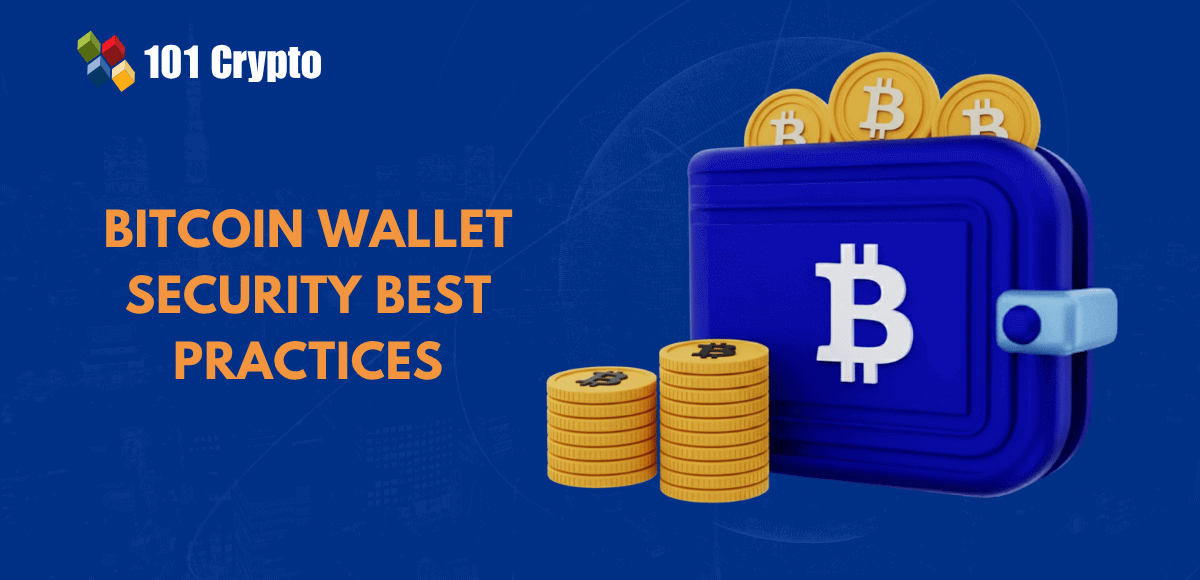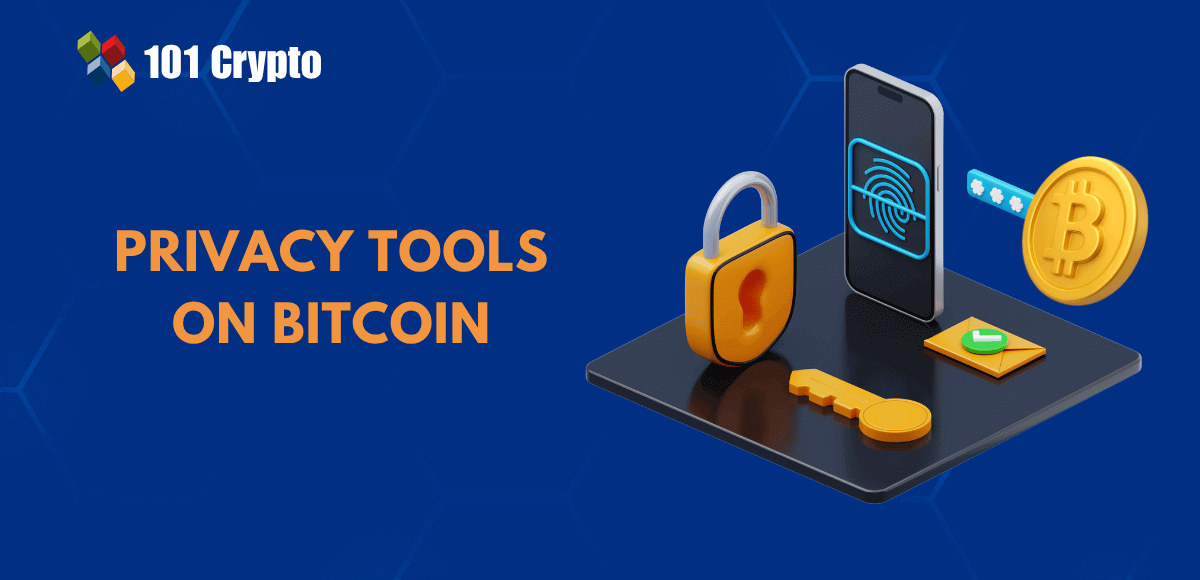Bitcoin Wallet Security involves a broad range of practices that can be adopted for protecting one’s Bitcoin wallet. Bitcoin, as a digital currency, allows you to transfer value anywhere in a highly convenient manner. Users need to secure their wallets so that they can be in complete control over their bitcoins. Whether you are a user of Bitcoin or not, you need to be aware of Bitcoin Wallet Security Best Practices. The practices will help you keep bitcoin security issues at bay.
Bitcoin Wallet Security Best Practices can certainly empower you as a Bitcoin user. You can adopt these practices in the real-life setting to carefully handle your bitcoins. The strategic implementation of the best practices can certainly equip you to be smart while handling your bitcoins.
Enroll now in the Bitcoin Fundamentals Free Course to gain deep insights on how the Bitcoin blockchain works.
An Overview of Bitcoin Wallet
A Bitcoin Wallet refers to a digital tool that enables users to store and perform transactions using Bitcoin. As a Bitcoin user, you need to manage your private keys so that you can effectively use your Bitcoin wallet.
A Bitcoin wallet does not hold the actual Bitcoin. Instead, it holds the cryptographic keys that give you access to your Bitcoin on the blockchain network. Bitcoin wallets offer users a personal interface to the Bitcoin network. If you have a secure Bitcoin wallet, you can engage in transactions while keeping your funds safe and secure. Now that you have an idea about bitcoin wallets, it is time to answer the question: How do I secure my bitcoin wallet?
Best Practices to Ensure Crypto Wallet Security
If you wish to address the question – How do I secure my Bitcoin wallet? You need to familiarize yourself with the best practices of Bitcoin wallet security. These practices will definitely enable you to tackle issues relating to Bitcoin security in a strategic and cautious manner. The Bitcoin Wallet Security Best Practices that you need to be aware of include:
-
Encrypting Your Wallet
One of the main Bitcoin Wallet Security Best Practices involves encrypting your Bitcoin wallet. Otherwise, you can also consider encrypting your smartphone, which you use to access your wallet. You can do so by setting a password. This practice will prevent anyone from trying to access your Bitcoin wallet for their own use. You must make sure that you do not forget the password. Otherwise, you will lose your funds permanently, and you will not be able to retrieve them.
-
Use of Multi-Signature Wallets
Multi-Signature Wallets or multisig wallets refer to the cryptocurrency wallets that require multiple private keys for authorization and execution of transactions. This setup is effective in tackling Bitcoin security issues. This is because it adds an additional layer of security for users.
These types of wallets are useful in situations where funds are managed or owned by multiple people. This type of crypto wallet security is effective since it prevents a single party from accessing the funds. You can consider using such a type of bitcoin wallet to mitigate the risks relating to key loss and theft.
-
Consider Using a Cold Wallet
A cold wallet is a cryptocurrency storage mechanism that keeps private keys entirely offline. This practice serves as a secure Bitcoin wallet that protects against malware and hacking. It also acts as a secure method against phishing attacks. The hot wallets are connected to the internet. However, cold wallets are not connected to the internet, which makes them highly safe and secure in nature. These wallets are generally used for long-term storage of Bitcoin.
-
Two-factor Authentication
This security practice is believed to be key to helping ensure robust security of users’ Bitcoin wallets. It strengthens protection as it needs two types of verification for accessing the wallet. The first factor is typically the user’s PIN or password. The second factor could be something that the user processes, such as a time-sensitive password or code. As a Bitcoin user, you can consider this dual-layer security since it can minimize the chances of unauthorized access.
-
Using Several Wallets
While talking about Bitcoin Wallet Security Best Practices, it is essential to consider using several wallets to store your Bitcoin. This practice can offer enhanced protection as well as risk management. It will create an opportunity for you to distribute your cryptocurrency assets across multiple wallets.
Thus, the risk of losing all your digital currencies can substantially decrease. You need to remember that different wallets serve different purposes. For instance, cold wallets offer high security for long-term storage of Bitcoins. Whereas mobile wallets offer ease of use and facilitate quick transactions.
-
Being Vigilant Against Phishing
As a Bitcoin user, you need to be vigilant against phishing and similar types of cybersecurity attacks. You need to be cautious since phishing continues to be a major threat in the dynamic cyber landscape. Phishing attacks may involve scammers impersonating credible crypto services.
As a Bitcoin user, you need to always be alert so that you cannot be tricked or fooled easily. You need to bear in mind that such types of attacks involve fake emails or cloned websites. A crucial step to ensure crypto wallet security is to be aware and careful as a cryptocurrency user.
-
Using Strong Passwords
The use of strong passwords is a must to have a secure Bitcoin wallet. It is crucial to bear in mind that a strong password has to be unique and complex. It should also be difficult to guess. You must use a combination of lowercase and uppercase letters and numbers.
As a Bitcoin user, you need to avoid using common words or any kind of personal information while creating your password. Weak passwords can increase your risk as a Bitcoin user. Thus, while setting your password, it is essential to think outside the box and be creative.
The practices can guide you to use your Bitcoin wallets in a safe manner. You must be cautious as a user so that you can take appropriate measures at each step while using Bitcoin. Another important piece of advice is to never share your private keys with anyone. It is a crucial thing to remember when it comes to Bitcoin wallet security, as private keys are secret cryptographic codes that can grant control over the Bitcoin associated with them.
Final Words
It is a must for every Bitcoin user to secure their Bitcoin wallet in 2025. You can consider using several wallets to spread out your risk. You can also consider using cold wallets to keep your private keys safe offline. Encryption techniques and the use of strong passwords can also help you to ensure the security of your Bitcoin wallet.
It is essential for bitcoin users as well as enthusiasts to be aware of bitcoin wallet security best practices. The knowledge can equip you to have complete control over your digital currencies. The best practices relating to bitcoin wallet security can enable you to adopt a holistic approach while managing your bitcoin wallet.
Disclaimer
The article should not be taken as, and is not intended to provide any investment advice. Claims made in this article do not constitute investment advice and should not be taken as such. 101 Crypto shall not be responsible for any loss sustained by any person who relies on this article. Do your own research!







